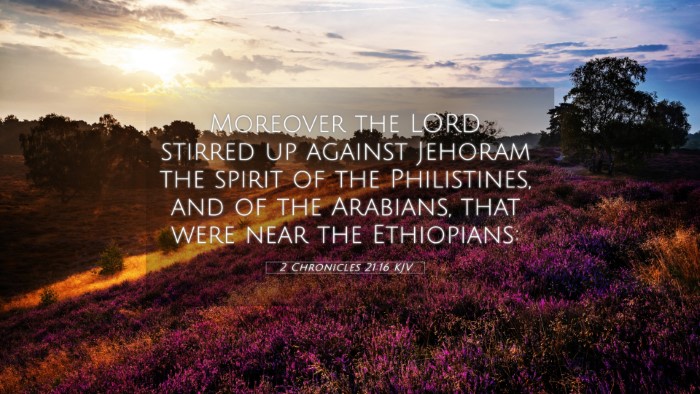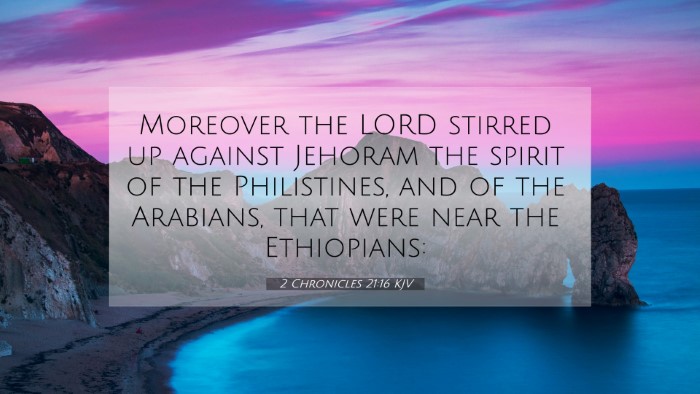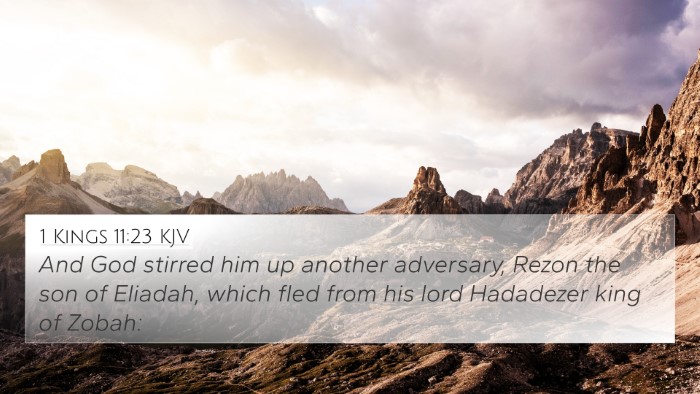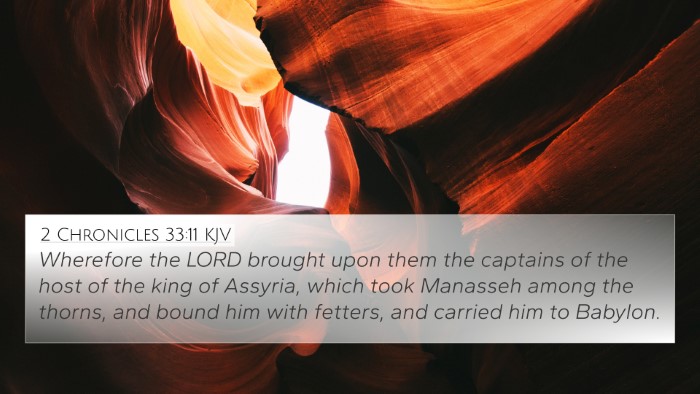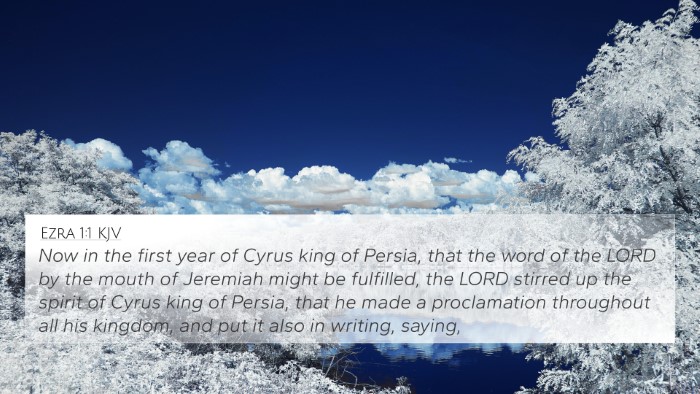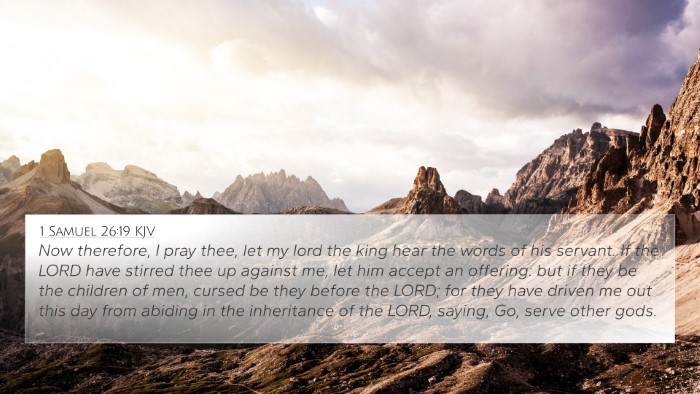Understanding 2 Chronicles 21:16
In 2 Chronicles 21:16, we read, "And the LORD stirred up against Jehoram the spirit of the Philistines, and of the Arabians, that were near the Ethiopians." This verse reveals God's active role in history, particularly within the affairs of nations and His people.
Context of the Verse
Jehoram was the king of Judah who succeeded his father, Jehoshaphat. His reign is characterized by disobedience to God and the introduction of Baal worship. Jehoram's actions led to divine retribution, where God raised adversaries against him as a judgment for his unfaithfulness.
Interpretations from Commentaries
-
Matthew Henry: Henry emphasizes that God’s stirring up of enemies serves as a reminder of His sovereignty over nations. He notes that divine judgment often comes through the rise of opposing forces, especially when a ruler strays from God's ways.
-
Albert Barnes: Barnes highlights that the Philistines and Arabians symbolized the encroaching chaos that follows disobedience. The implication here is that turning away from God results in vulnerability to external threats, affirming the importance of faithfulness to the covenant.
-
Adam Clarke: Clarke offers insight into the nature of these adversaries, suggesting that their appearance was not merely coincidental but a direct consequence of Jehoram's transgressions. He emphasizes that God allows trials and tribulations to bring His people back to repentance.
Thematic Connections
The themes present in 2 Chronicles 21:16 resonate throughout the Bible. Here, we find a pattern where unfaithfulness invites chaos and conflict. This theme is prevalent in various scriptural narratives and can be cross-referenced with several other Bible verses.
Cross-References
Here are several Bible verses that relate to 2 Chronicles 21:16, illustrating the connections between divine judgment and disobedience:
- 2 Kings 8:20-22: Discusses the revolt of Edom against Israel, demonstrating how rebellion can be both immediate and national.
- Jeremiah 25:9: God calls on nations to act against unfaithful Israel, showing His control over the fate of nations.
- Psalms 106:40-42: Reflects on the consequences of Israel's idolatry and the nations that were raised against them.
- Isaiah 10:5-6: God uses Assyria as an instrument of judgment against His people, illustrating His sovereignty.
- Romans 1:18-32: Discusses God’s wrath against sinful humanity, akin to historic examples in Israel's disobedience.
- Revelation 3:19: Reflects on the principle of discipline from the Lord, indicating the purpose is ultimately restoration.
- Proverbs 16:7: States, "When a man's ways please the LORD, he maketh even his enemies to be at peace with him," underscoring the importance of living in accordance with God's will.
Applications for Study
Understanding 2 Chronicles 21:16 invites us to explore several applications:
-
Reflect on the importance of faithfulness to God as a means of protection against adversarial forces.
-
Use tools for Bible cross-referencing to identify further insights and deepen understanding of biblical narratives, such as through a Bible concordance or a cross-reference Bible study guide.
-
Engage in a deeper comparative study of related scriptures to understand the broader implications of God's judgment and mercy.
Conclusion
2 Chronicles 21:16 serves as a critical reminder of the consequences of turning away from God's commands. Through careful study and inter-Biblical dialogue, we can uncover profound insights into God's nature, human accountability, and the overarching narrative of redemption found throughout Scripture.

